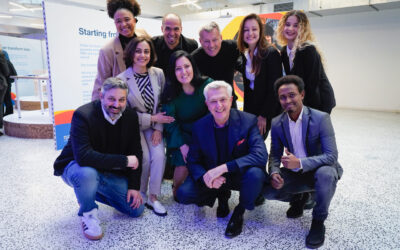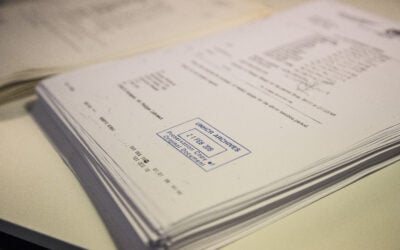Our Latest Articles
Transforming UNHCR’s buildings to be physically accessible and inclusive
By Reham Fties, UNHCR Land and Buildings Officer Physically accessible entrance to UNHCR’s compound in Ouagadougou, Burkina Faso. ©UNHCR/Boro Lassina Over 20 years of my professional life has been fuelled by my passion for architecture and humanitarian work. After a...
The humanitarian funding crisis: a looming health catastrophe for refugees and their host communities
The current funding crisis is hitting public health and nutrition programmes hard, disrupting or dismantling vital services for refugees and host communities. The impact extends beyond individual hardship, undermining the stability and resilience of entire communities.
Measuring absorption capacity: a new tool for inclusive response and integration planning in South Sudan
As displacement continues to evolve across South Sudan and the region, a new methodology offers a scalable model for action – placing evidence at the heart of reintegration planning by linking service quality, capacity benchmarks, and new arrival data.
« Maintenant, j’existe » : les réfugiés au Tchad reçoivent un numéro d’identification national
By Simon Pierre Diouf and Mohamed Doumbia Lancement de l’opération d’enrôlement en vue de la délivrance des titres sécurisés aux réfugiés résidant au Tchad. ©UNHCR/Aristophane Ngargoune Un projet novateur visant à améliorer l'inclusion socio-économique des réfugiés...
“Now I Belong”: refugees in Chad receive national ID numbers
By Simon Pierre Diouf and Mohamed Doumbia Launch of the enrollment operation for the issuance of secure documents to refugees residing in Chad. ©UNHCR/Aristophane Ngargoune Chad has launched an ambitious new initiative to help refugees better access essential services...
Digital humanitarians: the ITHACA project
By Heather Faulkner “When you depart for Ithaca, may your road be a long one, full of adventure and full of knowledge.” The opening lines of Constantine P. Cavafy’s 1911 poem, “Ithaca”, have served as inspiration to the 11 partner institutions,1 working together since...
We’re Better Together: the private sector is stepping up for refugee inclusion
By Shirin Pakfar, Chief of Private Partnerships and Philanthropy at UNHCRHigh Commissioner Filippo Grandi meets with Jesper Brodin, CEO of Ingka Group; Tolga Öncü, Ingka Retail Manager; and IKEA co-workers with refugee backgrounds. © Ingka GroupWhen people think about...
Revolutionizing refugee registration: The Digital Gateway in Egypt
By Simon Pierre Diouf and Raad Shaqman A Sudanese asylum-seeker is being assisted by a UNHCR staff member to use the new registration tool. ©UNHCR/Pedro Costa Gomes In August 2024, UNHCR Egypt launched the Digital Gateway to...
The Microdata Library in 2024: Expanding Access to Data While Strengthening Privacy Protections
By Andrea Pellandra and Alejandra Moreno Ramirez A group of Venezuelan men and women waits for a canoe to take them from Bajo Chiquito to Lajas Blancas. ©UNHCR/Ilaria Rapido Ragozzino Expanding the Microdata Library In 2024, UNHCR reinforced its commitment...
East, Horn, and Great Lakes of Africa: Leveraging Data for Sustainable Refugee Responses
By Jed Fix, Masud Rahman, Dr. Atinkut Mezgebu Wubneh, and Alessandro Nava Noor Ibrahim Isak, 67 harvests Sesame with his son, Hussein Noor Ibrahim, 15, at Kobe agricultural farm for the refugees and the host community in Kobe, Somali region of Ethiopia. ©UNHCR/Tiksa...
The Vanishing Archive: UNHCR Archives’ Recovery and Preservation of the Records from the Former Yugoslavia
©UNHCR/Laura Bernier Ebell
UNHCR and OECD Datathon: Harnessing Data for Forcibly Displaced and Stateless Children
By Tarek Abou Chabake and Jean-Christophe Dumont Hands of children at Tierra Bomba School, an ethno-educational institution with 1,188 students. ©UNHCR/Santiago Escobar-Jaramillo Data plays a crucial role in humanitarian efforts, providing timely and accurate insights...











